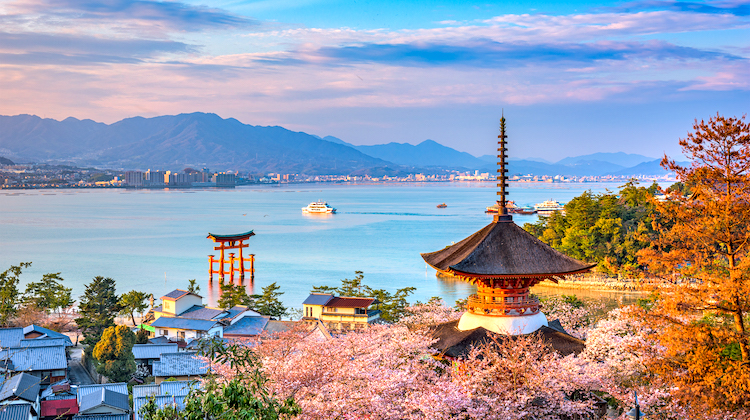Japan. The land of Pokemon and robot restaurants and forest bathing. A country where high-speed modern technology and the stillness of traditional culture happily coexist. Gratitude is a huge deal in Japanese culture and is often implied in people's everyday manners and language. At the same time, the Japanese are fun-loving and life often revolves around food.
In this article, I will be talking about 6 beautiful Japanese words that are uniquely Japanese. Like many such words, the direct translation is not possible and we can only discuss their meaning. Hopefully, you will get a small glimpse into the world of Japanese culture and philosophies.
Wabi-Sabi
The word Wabi-Sabi originates from a style of the Japanese tea ceremony. In this modern age, however, the term is often used as a philosophy of finding the beauty of imperfection. Wabi-Sabi embraces simplicity and beauty in the flaws that come with age. The notion of Wabi-Sabi is deeply woven into everyday life in Japan: cracks in pottery, autumn leaves scattered over the garden, green moss covering a stone lantern...
Wabi-Sabi recognizes some simple realities in life such as 'nothing lasts' or 'nothing is perfect. Such a simple truth, but living in this performance-driven and materialistic world (not only Western societies but also Japan, interestingly,) we easily get blinded and take small good things in life for granted. Where in your life is there beauty in imperfection, joy in small moments?
Natsukashi and Yugen
The adjective 'Natsukashi' loosely translates as 'feeling nostalgic', but the fact is, there really is no English equivalent that truly expresses this feeling or state of mind. This is probably the word that gets commented on by my students the most as 'one of the most beautiful Japanese words'. You describe places, people, time, and specific situations and events in the past as 'Natsukashi', as you look back and think about that time with much fondness, gratitude, and appreciation.
There is no negative implication in the word 'Natsukashi'. You are not making any comparison or feeling bitter about your present life. When you say 'Natsukashi', your heart is filled with gratitude, warmth, and a little fuzzy happiness. Are there moments in your life that invoke that feeling? Are there words for it in your language?
‘Yugen’ is the deep emotional feeling of awareness of the universe. Like ‘Natsukashi’ it is hard to truly express the feeling or state of mind. When we reach the mountain peak, when we float in the warm waters of the sea, when we bathe in the sunrise, those moments of stillness where we become overwhelmingly aware of our existence on Earth, our place in the cosmos, where we feel both big and small all at once, that is ‘Yugen’.
Food Onomatopoeias
Surely, we are all guilty of talking about food with our italki teachers and students too often. I know it is one of my favorite subjects and food is deeply rooted in many of our cultures. Many Japanese students will know words like Oishi ‘delicious’. Although Japanese is a language extremely rich in onomatopoeia, the expressions of food texture are where the Japanese take their love for onomatopoeias to a whole new level.
Just to name a few, 'Hoku-Hoku is for hot/fluffy/soft/crumbly foods and often used to describe hot baked potatoes; 'Toro-toro' describes silky creamy texture like melted cheese or a slow-cooked stew; 'Saku-Saku is a light crumbly texture like pies, biscuits or fried foods; 'Kari-Kari describes crunchiness, for example of crisps, rice crackers or fried bacon. Lastly, ‘puri-puri ', the feeling of biting into a plump sausage, that little snap and resistance, the juiciness that follows.
So, when you go to Japan next, welcome the business and peculiarity of big cities with an open mind, find wabi-sabi in a forgotten old shrine in an unknown forest, and after eating delicious tempura say 'Saku-Saku!' to the chef with a smile. The sense of gratitude is deeply engraved in the Japanese language, but also in non-verbal communications. Go with positive curiosity and let Japan show you the good, the bad, and the fleeting beauty of life. Explore and look back on the time and describe it to your friends as Natsukashi.







